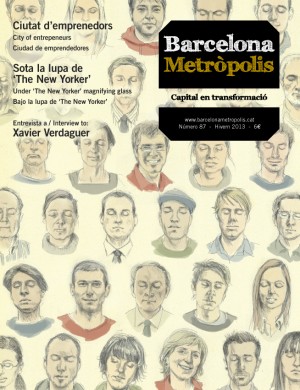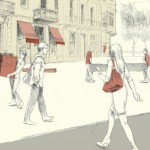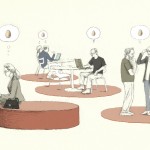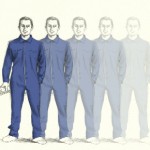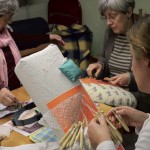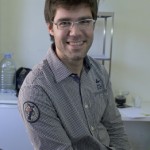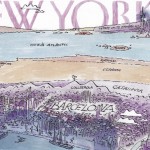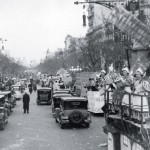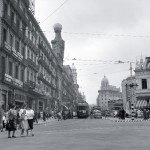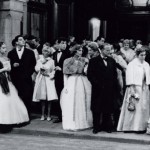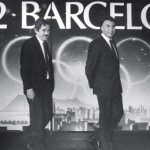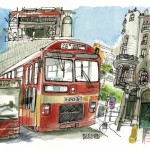We are on the threshold of a new economy based on the ability to connect people and build communities, an area in which Barcelona excels. A new paradigm of productivity is now ineluctably bringing out new collaborations in a world in which information and all the goods that go with it are circulating at breakneck speed.
Xavier Verdaguer is one of the most creative and international entrepreneurs that Barcelona has produced. He holds computing engineering and technical architecture degrees from Pompeu Fabra University, has studied top level management at Stanford University, and defines himself as a serial entrepreneur.
Barcelona has always been one of the driving forces of the industrial revolution in Spain, a place where entrepreneurs have prospered and their effort has been rewarded through social recognition. We are in the throes of an unprecedented crisis. The recession has also spawned new forms of social entrepreneurship.
In Barcelona, and throughout Catalonia, the so-called social ladder has historically prevailed, due to the absence of major landowners and the progressive emergence of middle classes. Newcomers were just as likely to make their fortune as the traditional bourgeois families. In this regard, there is also a sharp contrast with other cities in Spain.
The word “entrepreneur” has colonised the political and media discourse on a global level. Entrepreneurs are all the rage in the United States. In Catalonia, neither the crisis nor the employment ecosystem help them, but they try to carve out their niche in the market.
After going strong for 26 years, Barcelona Activa has become an international benchmark in the field of the public promotion of entrepreneurship. It is currently a source of opportunities for many people who have either lost or are in danger of losing their jobs and turn to self-employment as an alternative.
Through his books and blog, Seth Godin has inspired thousands of entrepreneurs all over the world. He is the founder of Squidoo.com, which is ranked among the United States’ one hundred most-visited websites. Our thanks to Seth Godin for allowing us to publish six of his reflections on the future of entrepreneurs.
Ignàsia, daughter of the artisan Pere Claver, and wife to the shoemaker Gaspar Robira, mastered the art of lace-making and engaged in the manufacture of this fabric, which she supplemented with a clothes-making business and money-lending. The industrialist eventually set up a production network that comprised the output of women working in 13 different towns of the area around Barcelona, from Maresme to Baix Llobregat.
The name Jacob Suñol will mean nothing to most of the people reading this. Nor will the names Pere Vallès or Ana Izquierdo. However, they are important people. The economic recovery has thousands of unsung heroes – people who risk their own assets to push projects through and generate economic growth and employment. They are the entrepreneurs.
Ko Tazawa first came to Barcelona in 1978, when he was sent by his bank to learn Spanish. His contact with Catalan society would lead him to love the country, its culture and language. He has been back twice, most recently in 1993, with his wife and two children, to take his PhD in Catalan philology.
Barcelona appears in one in twenty of the 4,100 issues published by the magazine since 1925. Some of the most noteworthy articles, when considered together, offer a clear vision of the phases the city has been through.
Magazines produced in New York are a window onto the cosmopolitan world that North-American laws and customs seek to express. Barcelona’s presence in ‘The New Yorker’ began in 1935, with a description of the Carnival which foreshadows Post-Civil War morality, clashing abruptly with the ‘joie de vivre’ of the Second Republic, still in power at that time.
The article by Marya Mannes, published in 1944, is a war article. The Allies had landed in Normandy six months previously and Paris was liberated in August. The implicit question is whether crossing the Pyrenees with the Allied army is an advisable undertaking.
The articles of the Fifties depict a defeated and vulgar country, whose only saving grace is its Mediterranean exoticism. They crystallise the myth of the Barcelona good life, driven by disorder, heat, the bohemian lifestyle, unpunctuality, sex and, in general, a laid-back, dirty and cultureless ‘carpe diem’. There is an underlying sadness, silence.
On the occasion of the Olympic Games, the magazine published another leading article about Catalonia. Barcelona is portrayed as rooted in consumerism, a paradigm of the late-capitalist welfare society. The law of resetting memory yields its fruits, but ends up being confused with reality.
A novel which portrays the moral collapse of a century split between empiricism and rationalism, light and dark. ‘Victus’ transcends national events without any type of indulgence, in 600 pages where it is perfectly clear that everything is the outcome of the vulgar dimension of mere existence, and of the desire to exist, to be, with no heroes, and with an exasperating unreasonableness that drives the events forward.
I used to take the number 28 bus in Plaça de Catalunya, outside the Catalònia bookshop. I was beginning to get interested in literature, and more than once that window had made me late for a date with my girl, who used to wait for me on the steps of Plaça Salvador Allende.



